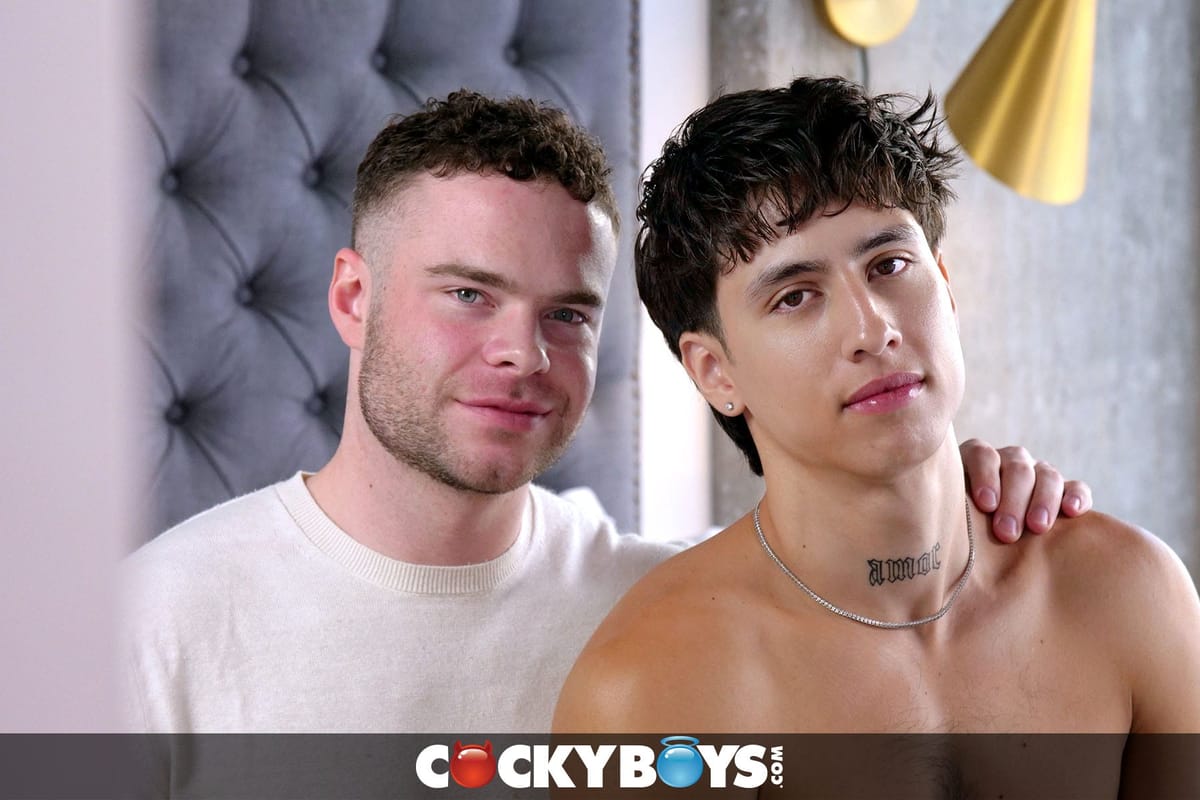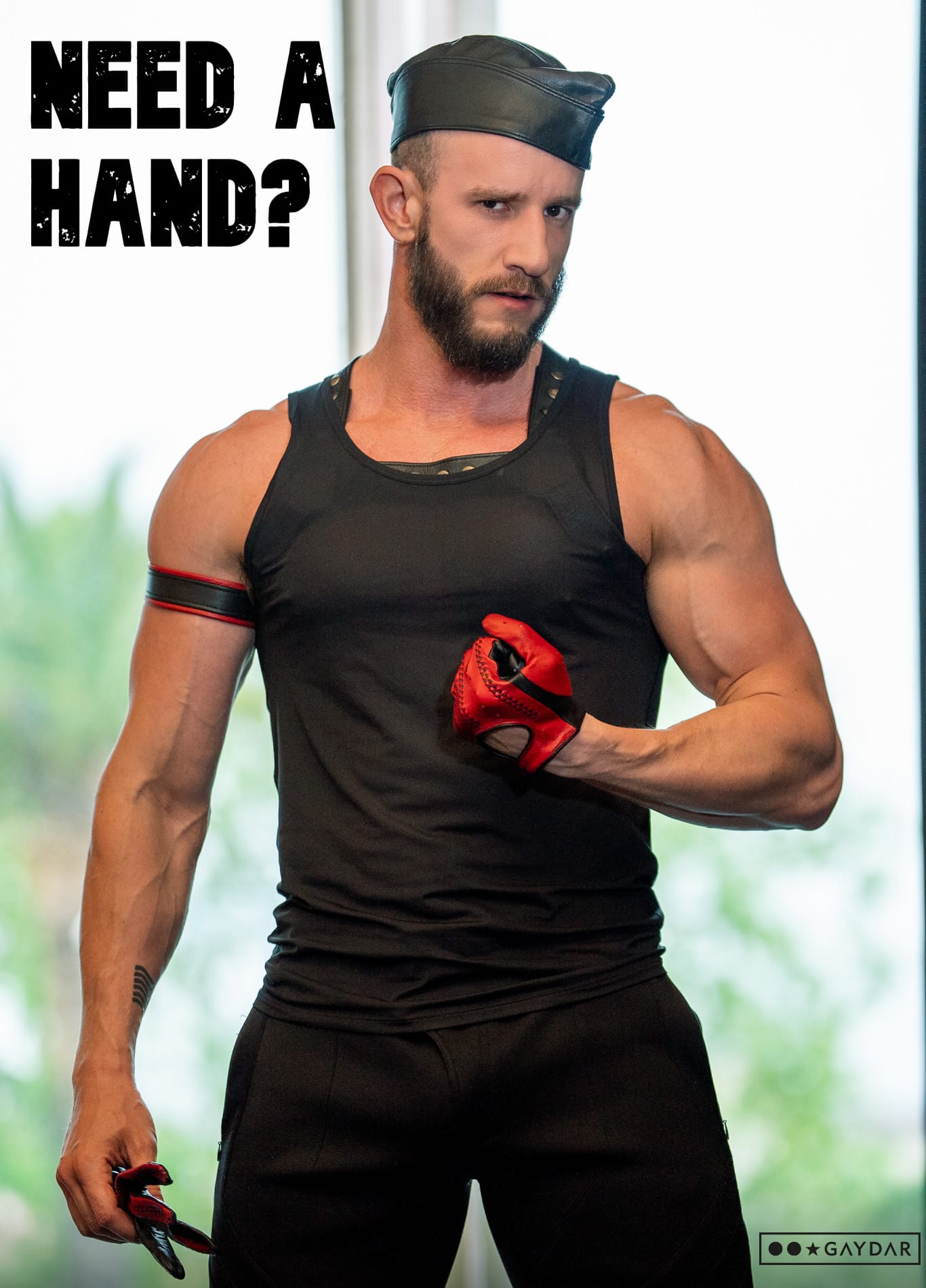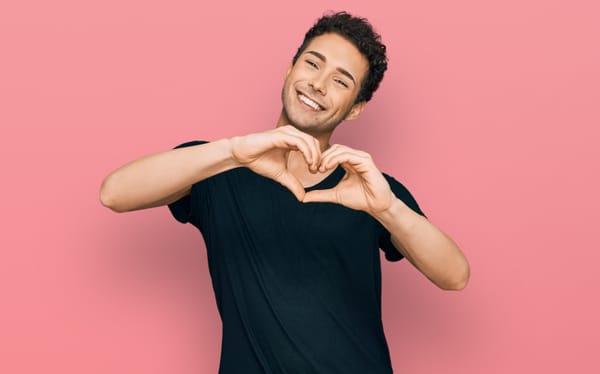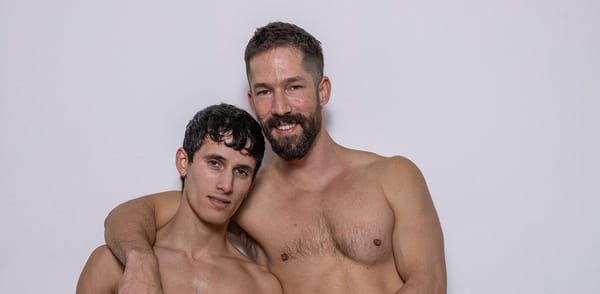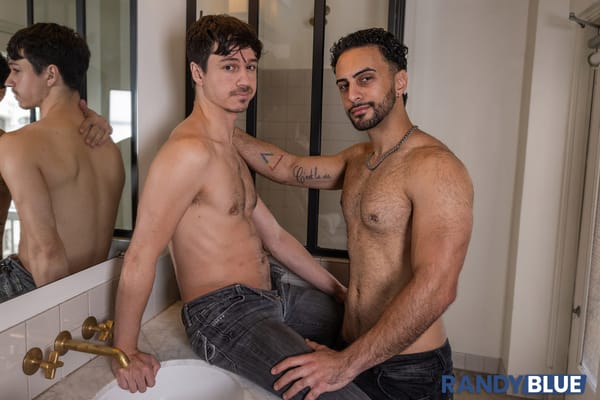Do queer men need therapy?
Let's unpack that.

For our podcast, How To Date Men, we caught up with David from Gay Men's Therapy - a specialist psychotherapy and counselling service for gay and queer men and men attracted to men.
In the conversation, we talk open relationship, chemsex, and why queer men have specific needs in terms of counselling and therapy.
What drew you to focus on providing specialist support to queer men?
I suppose I've always wanted to put something into our community. I came out quite late in life, in my mid-forties. I was in education at the time. I started volunteering for things like Body Positive and so on and I've always wanted to contribute in some way.
I retrained as a psychotherapist about eight or nine years ago - the vast majority of my clients come from the LGBT community.
Do queer men have specific needs in terms of counselling and therapy?
I think we want to feel safe. My experience of working with queer men, gay men over these last few years, and also being in therapy myself, is that I have met a number of people who've gone into therapy and they've worked with someone not in our community - they have struggled to feel seen and understood.
They've also felt very inhibited if they want to talk about sex or drug use or some very sensitive issues. Either the therapist they're working with says, well, I haven't got any experience in that field, or they just don't seem to feel understood, or they feel that they simply can't talk about that kind of level of intimacy.
Eventually they find themselves seeking out a gay therapist, and then there's a certain amount of known-ness between me and them that means that they can feel more comfortable, safer, and whatever transpires in the therapy, they can pretty much talk about anything they want to because I'm going to be able to either use my own experience or literally just be able to be empathetic to what they bring.
You don't really want to feel like you have to edit yourself or censor yourself in a therapy setting - that seems to defeat the purpose of being there?
Therapy is a very non-judgmental, or should be a very non-judgmental, experience. And I think, to be honest, as gay men, we've spent a lot of time being judged by the wider society, and that still goes on. And so finding a space where you feel comfortable not to be judged for who you are is actually an incredibly important part of the process.
What are some of the common needs or issues that queer men are bringing into a therapy setting? What are they looking for help with?
Open relationships have become quite a considerable amount of the work that I find myself involved with my clients - non-monogamy and whether to open up a relationship or not.
I'm also doing a lot of work with chemsex and drug use and the impact on the individual person. Because of the amount of work that was coming into my therapy space, I did some training in compulsive sexual behaviours which gave me a lot more tools to support clients who come to me who are struggling with a chemsex spiral.
Anxiety about identity is another common issue. We seem to think these days, because there's a lot more positive role modelling and a lot more openness about sexuality, there's an assumption that there's no problem anymore. But a 15 or 16 year old who realises that they're not straight is likely to have exactly the same problems that I did when I was that age in trying to find their place in the world.
Is our mental health generally getting worse? Or are we just getting more open to talking about when we're struggling, what we're struggling with? Or is it perhaps a bit of both?
It's both, I think. The world that we live in is far more traumatic and unstable. I find that quite a lot of what's going on - which is not to do with sexuality - is coming into the therapy space.
Only the other day a client was particularly distressed because of all of this stuff going on with the hotels where asylum people are being placed and the sort of the awful violence and and mistreatment - he's shocked and sickened by the fact that our society can be so unsympathetic. It can be really impactful and really affect people's emotional well-being.
It almost hints at a deeper problem around lack of feeling part of a community and a sense of isolation from what's happening around us?
We have our own experience of being othered, so we know what it's like to be on the outside rather than in the middle of society. I think that's why our sensitivities are heightened towards anyone who's going to be mistreated in any kind of way.
How does therapy help us? Is it about sort of fixing an issue fixing an underlying problem? Or is it giving us the tools to cope with whatever we're dealing with?
I think it's both those things. A a lot of people come to therapy because they feel they're repeating patterns in their life - particularly around relationships. Why do I always end up in that kind of relationship? What is it about me? Is it them or is it me?
We all have what I call a life script, a sort of emotional DNA that we have carried through our lives that comes from early childhood. And we learn to react in certain ways and behave in certain ways and sometimes they're not very helpful for us. So therapy can help unpick that and unravel that. Therapy can move people more towards an autonomous way of being so that they're free of the impact of negative things that have happened in their early life.
Has working with queer men in this context evolved or changed your perspective on how you process your emotions or respond to traumatic situations?
I feel very privileged to do the job that I do because I have learnt a huge amount from all the clients I work with. It's not a one-way process. For me, I've not experienced all the things that my clients bring that they need to talk about and want to understand, but in listening to them and understanding what they're going through educates me.
If someone was struggling with something and wondering if therapy might be the way forward, what advice or guidance would you give them?
There are a lot of different organisations that are offering support. I think it's a big step for anybody to want to go and have therapy and I will always make sure I say to anyone I work with, I know that it's taken courage to decide to come. Sometimes people only get as far as making the phone call and then it becomes too much and I would just urge them to push on through.
The NSFW edition
If you want to admire some man-on-man action, our NSFW edition gives you every inch.
Sign in and check out our NSFW content - it's free!
